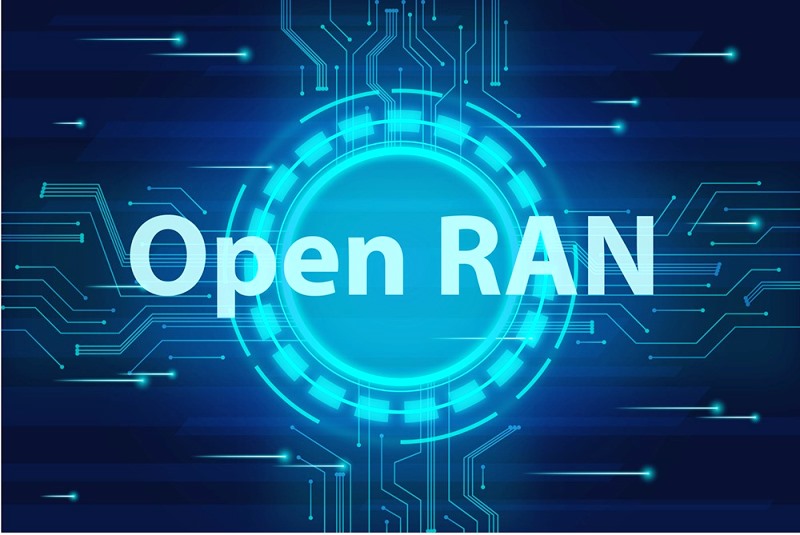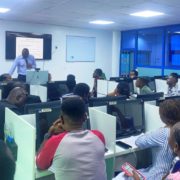Many mobile industry trade media publish stories about OpenRAN, but few ask the critical questions which concern mobile operators. Fortunately Strand Consult offers the remedy to this hype with its new, free report “Debunking 25 Myths of OpenRAN”. Order the report today to separate myth from reality and learn the difficult truth which will challenge OpenRAN development in the future.
Many OpenRAN pronouncements sound too good to be true, for example a technology that can reduce mobile operators infrastructure CAPEX and OPEX by 30-40 percent. Investors and other decision makers want objective information about the latest mobile industry hype. Strand Consult’s report “Debunking 25 Myths of OpenRAN” examines the claims made by OpenRAN proponents. Strand Consult, having witnessed the launch of WiMax, OneAPI, and the iPhone among other hyped technologies promised to bring windfall revenues to mobile operators, provides critical questions to evaluate OpenRAN in its latest report.
RELATED Fact Vs Fiction: The 10 Parameters Of OpenRAN
Strand Consult is an independent research company with 25 years industry experience in the mobile telecom industry with over 170 mobile operators globally as clients. Strand Consult is known for its expert knowledge and many reports which help mobile operators and their shareholders navigate an increasing complex world.
We at Strand Consult has nothing against OpenRAN. However we want to create the transparency at the O-RAN Alliance, and some of its members have pushed back. Indeed Strand Consult’s transparency concerns are shared by policymakers in the EU and US, notably the House of Representatives Foreign Affairs Committee.
Strand Consult has studied OpenRAN and produced many reports and research notes on the topic. Strand Consult first identified that there are at least 44 Chinese firms participating in the OpenRan Alliance, debunking the assertion that OpenRAN would be free of Chinese influence. Strand Consult has also posited that Huawei is influencing OpenRAN indirectly through its largest customer China Mobile, which is a founding member of the O-RAN Alliance. However inspiring companies like Mavenir, Parallell Wireless, and Altiostar may be to storytellers, they are bit players. Most of the contributions to OpenRAN specifications come from old established technology providers and China Mobile.
Strand Consult’s goal is to create objectivity and transparency about the actors promoting OpenRAN so that mobile operators, investors and others stakeholders can make informed decisions. Strand Consult finds it telling that OpenRAN proponents have not wanted to answer its critical questions addressing financial, economic, technical, and practical points about the technology. This is particularly evident at many OpenRAN webinars over the last 18 months when Strand Consult posts its questions publicly in the chat and the moderator ignores the questions, or Strand Consult’s emailed questions to the event organizer are ignored.
In an effort to lift the level of policy discussion, Strand Consult offers a comprehensive review of the official public documents promoting deployment of 5G Open Radio Access Networks (OpenRAN). These include the set of industrial, think tank, advocacy, and academic papers and reports as well as official proceedings by regulators and authorities in the United States and European Union. Official inquiries on OpenRAN have been undertaken by the Federal Communications Commission (FCC), the National Telecommunications and Information Administration (NTIA), and the DG Connect at European Union.
These inquiries have a variety of goals. One objective of these inquiries is to explore resilience in the network infrastructure market. Another is to promote alternative suppliers to Chinese providers Huawei and ZTE. Yet another is to explore and develop industrial policy and promote domestic companies.
Strand Consult believes that such processes and subsequent reports are important. Telecommunications regulatory authorities are tasked with providing policymakers with objective information for decision making as well as cost benefit and other analyses.
In the report “Debunking 25 Myths of OpenRAN”, Strand Consult investigates the quality of the literature describing OpenRAN. It categorizes the 25 myths into 6 categories: security, competition, innovation, engineering, economics, and public policy. Among the OpenRAN reports, articles, and investigations, there is little information which can be classified as empirical, scientific, or peer-reviewed. Outside of a few exceptions, most materials are marketing/advocacy promoted by OpenRAN proponents or news/press releases/opinion pieces. The key shortcomings of the OpenRAN discussion include
- Lack of objectivity and/or empirical support
- Preconceived notions, assumptions, and assertions about the economics of infrastructure, competition, and innovation
- Little to no discussion of the infrastructure value chain beyond the large infrastructure equipment providers
- Ignorance or failure to disclose that OpenRAN is not a technical standard. The O-RAN Alliance develops technical specifications for 4G and 5G RAN internal functions and interface, not for 2G and 3G. The O-RAN Alliance is not a standards development organization (SDOs) like the 3GPP.
- Ignorance or failure to disclose that OpenRAN only supports 4G and 5G and therefore it is not a 1:1 commercial alternative for 5G networks. Moreover OpenRAN does not support 2G and 3G, the prevailing network generation in many developing countries, and yet OpenRAN is reported as a solution for developing countries.
- Ignorance or failure to disclose that 182 commercial 5G networks have been launched globally. These are classic RAN installations that support 2, 3, 4 and 5G in one base station. There is only 1 commercial OpenRAN installation, Rakuten in Japan.
- Ignorance or failure to disclose how small expectations are for the OpenRAN install base by 2025 and 2030 compared to the entire market. This is likely just 1 percent in 2025 and under 3 percent in 2030.
- Ignorance or failure to disclose the role of Chinese vendors in OpenRAN ecosystem and their leading role in OpenRAN governance and specification setting
The report “Debunking 25 Myths of OpenRAN” takes a critical view of the claims made about OpenRAN, including the claim that OpenRAN will stimulate the 5G service market. Strand Consult doesn’t believe OpenRAN will stimulate the 5G service market. We understand which services there will be in the core network and which in the cloud. They key problem for OpenRAN community is that they can’t explain which services are based on RAN that require OpenRAN on a cell site to be implemented. And the OpenRAN community cannot tell us who will develop these OpenRAN-based services, who will sell them, what business models underlie these services, whether they will address corporate or consumer market. And they cannot tell us about whether these services only be available on the few mobile sites where the operators have implemented OpenRAN, e.g. outside the big cites.
The report “Debunking 25 Myths of OpenRAN” will provide the objectivity and transparency needed by decision makers. This is the sort of information and analysis which is not available in most mainstream outlets. At the end of the day, mobile operators’ job is to deliver a great network experience to their customers. OpenRAN proponents have not succeeded to communicate, let alone demonstrate, specifically or empirically the difference they will make to mobile operators’ bottom line in a world where 182 commercial 5G networks on classic RAN have been launched.
For more than 25 years, Strand Consult has debunked the many myths of mobile industry hype. With its new and free report “Debunking 25 Myths of OpenRAN”, Strand Consult provides valuable information to mobile operators, investors and other mobile industry stakeholders.
Contact Strand Consult today to get your free copy of the report “Debunking 25 Myths of OpenRAN”,
Original title of feature: Many talk about OpenRAN but few dare to ask the critical questions which concern mobile operators




























